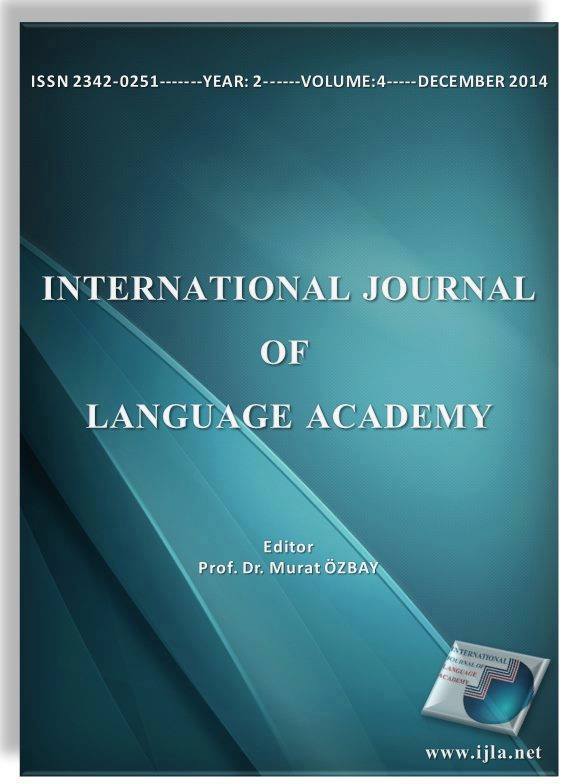Author :
Abstract
Eğitimde yöntem ve teknik tartışmaları eski yıllara uzanmaktadır. Bu tartışmaların başında eğitimde hangi yöntem ve tekniklerin daha etkili olduğu gelmektedir. Ardından hangisinin yöntem ve teknik olduğu, öğrencilerin dil ve zihinsel becerilerini geliştirmek için nasıl uygulanması gerektiği konuları gelmektedir.Alanda eğitim yaklaşım ve modellerinden hareketle geliştirilmiş çok sayıda yöntem ve teknik bulunmaktadır. Bazıları eski bazıları da çağdaş eğitim anlayışına dayanan bu yöntemlerin her birinin özelliği, yararları ve uygulama biçimi farklıdır. Bunları amaca uygun seçmek ve uygulamak için ayrıtılarını iyi bilmek gerekmektedir. Oysa bazı eğitimciler öğretim yöntem ve teknikleri arasındaki farka dikkat etmemekte, bazıları bunların kullanım amacına göre değiştiğini, yerine göre hem yöntem hem teknik olduğunu vurgulamaktadır. Bu karışıklık eğitim kaynaklarında da görülmektedir. Bazı kaynaklarda özel öğretim yöntemleri yerine genel öğretim yöntemleri verilmekte, bazılarında ise yöntem ve tekniklerin bilimsel temelleri, amacı ve nasıl seçilmesi gerektiği iyi açıklanamamaktadır. Oysa yöntem ve teknik arasında önemli farklılıklar bulunmaktadır. Yöntem bir amaca ulaşmak için izlenen yol, teknik ise bir iş ya da işlemi yapma biçimi olmaktadır. Eğitim amacına, öğrenci gelişim düzeylerine, materyal ve öğrenme ortamına göre seçilen ve uygulanan yöntemler eğitim, öğretmen ve öğrenci başarısına önemli katkılar sağlamaktadır.
Keywords
Abstract
Debates on the strategies and techniques in education have been made since old years. At the beginning of these debates, there exists the discussion about which strategies and techniques are more effective. Then, the topics that which of them are strategy and technique and how they should be used to improve students’ language and mental skills are discussed. Moreover, in the literature, there are various strategies and techniques based on the education approaches and models. The properties, advantages and applications of these strategies developed based on old or modern education understanding vary. Therefore, it is important to know them in detail in order to choose and apply appropriate one with respect to the objectives. However, some educationists ignore the differences between teaching strategies and techniques. Also, some of them emphasize that the strategies and the techniques vary based on the aim of using them and some of them can be both strategy and technique considering its taking place. Unfortunately, this confusion is observed in education literature. In some resources, general teaching strategies are explained instead of special ones or the descriptions on the scientific foundations and the aims strategies and the techniques and choosing ways of them are not made. However, there exist important differences between the strategies and the techniques. While the strategy is a way followed to reach the aim, the technique is the type of making a work or operation. The strategies chosen and applied propose benefits to the success of education, teacher and student considering education aims, levels of the students’ development, materials and education environment.
Keywords
- Abouzaj, S. (2007). Animation de L’enseignement / Apprentissage Les Méthodes d’enseignement, IFCS Rabat.
- Bachy, S., Garant, M. & Frenay, M., (2008), Comprendre les niveaux d’enseignement. Cas d’une enquête menée à l’Université catholique de Louvain. Actes du 20e colloque de l'ADMEE-Europe, Université de Genève. [https://plone.unige.ch/sites/admee08/communications-individuelles/v-a2/va2-1]
- Bloom, B.S. (1956). Taxonomy of educational objectives. Handbook I : Cognitive Domain, New York : McKay.
- Chamberland, G., Lavoie, L. & Marquis, D. (1996). 20 formules pédagogiques. Québec: Presses de l’Université du Québec.
- Chirat, Frédéric, Dupre Aurélie, Leleu Benjamin.(2014). Choisir des méthodes d’enseignement adaptées Mémo de l’atelier, CAPE,Université Lille 1, France. cape@univ-lille1.fr|www.sup.univ-lille1.fr/CAPE
- De Ketele, J.-M., Chastrette, M., Cros, D., Mettelin, P. & Thomas, J. (1988). Guide du formateur. Bruxelles : De Boeck.
- De Ketele, J.-M & Roegiers, X. (1993). Méthodologie du recueil d’informations. Bruxelles : De Boeck. Lang, H., McBeath, A. ve File,J. (1995). Teaching Strategies and Methods for Student,
- Mialaret, Gaston.(1991). Pédagogie générale, Paris, PUF, 598
- Morandi, Franc.(1997). Modèles et méthodes en pédagogie, Paris, Nathan, Coll. 128.
- Not, Louis.(1988). Les pédagogies de la connaissance, Toulouse, Privat.
- Ostiguy, Jacques (2012). L’étude de Cas, Collège De Valleyfield, Colloque de l’AQPC Gatineau, QC.
- Prégent, R. (1990). La préparation d’un cours. Montréal : Editions de l’Ecole Polytechnique de Montréal.
- Rieunier, A. (2000). Préparer un cours. 1 Applications pratiques. Issy-les-Moulineaux : ESF.
- Ruph, François.(2012) le Cours d’enseignement (Cours EDU3205), UQAT, Canada http://web2.uqat.ca/profu/textes/enseign/01choisi_strat.htm Saskatchewan.
- Education. (1993).Approches Pédagogiques Infrastructure pour la pratique de l’enseignement Ministère de l’Éducation de la Saskatchewan.
- Tournier, M. (1978). Typologie des formules pédagogiques. Québec : Ministère de l’éducation, Direction de l’enseignement collégial.





